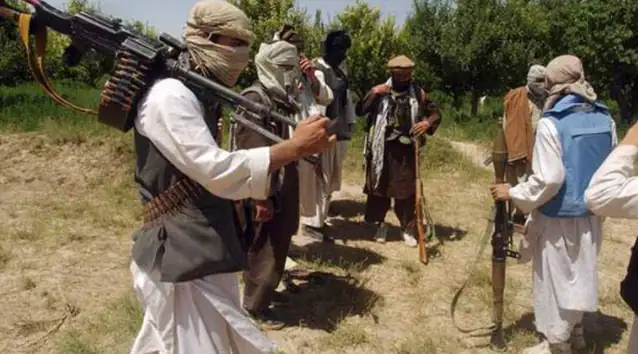Kabul: The Islamic Emirate in Afghanistan marked 100 days in power on Tuesday, but the Taliban is yet to achieve international recognition for the new government.
According to Tolo News, the Taliban regime is yet to get international recognition despite repeated diplomatic efforts led by Amir Khan Muttaqi to achieve international recognition for Afghanistan`s new government, which is led by Mawlawi Hebatullah Akhundzada, the Islamic Emirate supreme leader.
Islamic Emirate officials reportedly flew to various regional countries–and further–to seek engagement and to build relations with foreign governments. In return, representatives of at least six countries visited Afghanistan and held talks with officials.
Currently, eleven countries, including Iran, Pakistan, China, Russia, Turkey, Qatar, Uzbekistan, Turkmenistan, Kazakhstan, Kyrgyzstan, Italy and the United Arab Emirates, have reportedly opened their embassies in Afghanistan.
During the first 100 days, six significant regional and international meetings were held in Afghanistan. Iran, Pakistan, India, Russia, China hosted meetings on Afghanistan, and G20 leaders and as well as the United Nations Security Council (UNSC) discussed Afghanistan`s issues in separate sessions.
But the recognition of the Islamic Emirate government was not discussed at the meetings, reported Tolo News, adding that the meetings mainly focused on–and stressed– topics such as an inclusive government, human rights, freedom of expression, the right of education and employment for Afghan women and girls, and Afghanistan`s soil not being used as a platform for insurgency/terrorism.
“The diplomatic and foreign policy of the Islamic Emirate was limited to some neighbouring and regional countries during the hundred days. Countries are waiting to see whether the Taliban will fulfil whatever they committed to earlier or not,” Fakhruddin Qarizada, a former adviser to the Ministry of Foreign Affairs, is quoted saying by ANI report.
257 Afghan media outlets shut
A total of 257 media outlets have been shut “due to financial challenges as well as restrictions” since the Taliban takeover of Afghanistan, a media report said citing an NGO.
NAI, the group which has been providing advocacy and support to the Afghan media industry since 2004, said on Tuesday said the closed outlets include print, radio and TV stations, TOLO News reported.
NAI reportedly said that over 70 per cent of Afghan media workers have become jobless or left the country after Kabul fell to the Taliban on August 15.
Reports have also revealed that during the 100 days of Taliban rule, six reporters have lost their lives in various incidents including attacks by unknown armed men, explosions, suicide and traffic incidents.
Officials of the Taliban-led Islamic Emirate government have repeatedly said they are committed to protecting media achievements and freedom of expression. But the Islamic Emirate`s two lists of principles for media operation have raised concerns over restrictions, said an IANS report citing TOLO News.
“The recent statement, which has eight articles (from the Virtue and Vice ministry) has raised concerns. We hope the issue is resolved in consultation with the media,” the TOLO News report quoted Hujatullah Mujadedi, head of the Afghanistan Independent Journalists Association, as saying.
A media officer at Afghanistan National Journalists` Union, Masroor Lutfi, is quoted as saying “We urge that the Law on Access to Information, and Media Law, which are not being used now, be amended based on the current situation and in consultation with the media.”
(With Agency Inputs)
Live TV











